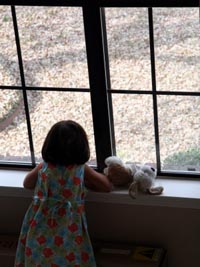About Reactive Attachment Disorder
 Reactive Attachment Disorder (sometimes known as Radical Attachment Disorder) occurs in children or young adults who have not formed a strong attachment with their primary caregiver. Reactive Attachment Disorder (RAD) may result from abuse, from neglect of physical or emotional needs, especially in infancy, or from frequent changes in the child’s primary care, such as for adopted children or those in foster care. The causes of Reactive Attachment Disorder may be unavoidable in some cases: for example, when a parent dies or is emotionally unavailable due to depression or mental illness. Whatever the cause, children and teens who display this disorder have not bonded with their caregivers and have difficulty establishing any close relationships.
Reactive Attachment Disorder (sometimes known as Radical Attachment Disorder) occurs in children or young adults who have not formed a strong attachment with their primary caregiver. Reactive Attachment Disorder (RAD) may result from abuse, from neglect of physical or emotional needs, especially in infancy, or from frequent changes in the child’s primary care, such as for adopted children or those in foster care. The causes of Reactive Attachment Disorder may be unavoidable in some cases: for example, when a parent dies or is emotionally unavailable due to depression or mental illness. Whatever the cause, children and teens who display this disorder have not bonded with their caregivers and have difficulty establishing any close relationships.
Reactive Attachment Disorder may manifest itself in one of two main categories of behavior: inhibited or disinhibited. Children displaying the inhibited type act detached or unresponsive, while those with the disinhibited type show inappropriately familiar behavior. For example, they may act affectionate with complete strangers but remain withdrawn from their parents.
Teens who deal with Reactive Attachment Disorder (RAD) face an inability to form proper relationships with others: either by not allowing any close relationships or by forming inappropriate relationships. If Reactive Attachment Disorder is not treated, the teen may develop social, behavioral, and psychological issues later in life. It is important that these teens are encouraged to form appropriate relationships with those around them. Treatment begins with assessing the level of detachment and determining whether the child can safely remain in the home.
Family therapy plays a critical role in the treatment of attachment disorders. The therapist will help the parents and the teen improve their relationship by facilitating positive experiences together and encouraging communication. The therapist may also work individually with the child in counseling and will help the parents gain needed parenting skills as well. Attachment disorders can be healed, and teens can go on to enjoy healthy and vibrant relationships with their parents and with others.
We’ll help you find a therapeutic boarding school for your child with Reactive Attachment Disorder
We talk to dozens of parents daily, matching them up with therapeutic boarding schools that can best help their teenager. We visit these schools and we know the people there. And we get regular reports from parents who have placed their teenager there. So we are in a unique position to help you in this important decision. There is NO CHARGE for this service. Just fill in the inquiry form and I’ll provide the best possible options for your child.
[HTML1]